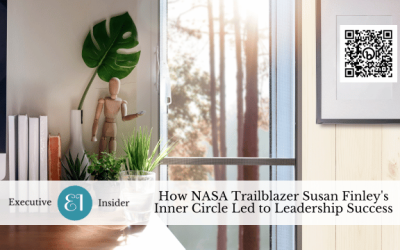May and I are first-generation college graduates with Ivy League degrees. Mine is a bachelor’s from Columbia and May’s is a master’s from Harvard. Until May brought it to my attention, I hadn’t thought about the extra layer of unique challenges in the workplace faced by first-generation professionals (FGPs) from public and non-elite schools. Being an FGP is tough, but competing with Ivy League grads makes it even tougher. Non-Ivy FGPs often miss out on high-profile projects and are undervalued. Today’s post is about how to deal with being held back or not being given the same opportunities as your Ivy League colleagues. We explore strategies for advancing your career and overcoming disparities when you’re not from an elite institution.
Leveling the Playing Field for First-Gens From Public or Non-Elite Schools
You worked tirelessly to become the first in your family to graduate college and land a coveted corporate role. Yet years into your career, you notice colleagues from Ivy League backgrounds being promoted over you. Their networks and pedigree seem to carry more cachet.
As a first-gen professional from a public university, you constantly feel you have to work twice as hard just to be taken half as seriously. It’s easy to internalize fears that you don’t quite measure up.
But you do bring immense value to the table. And with the right strategies, you can shatter assumptions and open up advancement pathways. The key is honing the soft skills elite grads already possess while spotlighting your unique strengths.
Data Shows Inequities Are Real
It’s not just your imagination. Research indicates first-generation professionals from non-elite colleges do face barriers to getting coveted assignments and promotions.
-
- One study found managers perceived candidates as more competent when their resumes listed Ivy League degrees, even though resume contents were otherwise identical. 1
- First-generation students are underrepresented at elite institutions, comprising just 3% of the Ivy League student body while making up over 50% of college attendees nationwide. 2
- Only 0.2% of Fortune 500 CEOs attended a non-flagship public university. 3
- One study found managers perceived candidates as more competent when their resumes listed Ivy League degrees, even though resume contents were otherwise identical. 1
You Have Much to Offer: Make It Visible
But you don’t have to accept a stunted career trajectory. With some shifts in mindset and strategy, you can get decision-makers to take notice and value your contributions.
-
- Spotlight transferable skills gained through diverse life experiences like military service, nonprofit work, or navigating college as a trailblazer.
- Seek high-visibility assignments that showcase your talents beyond your core role. E.g., Volunteer to give project updates at meetings to get face time with leadership.
- Identify senior leaders as mentors and actively seek their career advice and guidance. Whether or not you can find a compatible mentor at work, you should also enlist a mentor and inner circle who’s outside your workplace.
- Pursue continual learning and certifications to edge out Ivy League competition. E.g., Take public speaking or improv classes to polish presentation abilities.
- Build communication skills to interface smoothly with executives. E.g., Seek opportunities to moderate panels or deliver trainings to gain visibility.
- Attend industry conferences and events to network with influential people in your field.
- Join professional associations and cultivate mentor relationships through them.
You offer perspectives and problem-solving abilities elite colleagues often lack. A mentor or inner circle can help you leverage your resilience and work ethic honed through overcoming long odds, so you can boldly — yet tactfully — make your voice heard. The playing field might not be even, but you have what it takes to succeed on your own terms. Your experiences are assets, not obstacles.
Owning Your Value
It’s important to also take time to reflect on what true “success” means for you. Prestige and status might not equate to fulfillment.
Focus on making meaningful impact through your work rather than fixating on promotions or job titles. Consider balancing corporate life with building a side business or working on entrepreneurial side projects you control.
With the right blend of strategy and self-advocacy, you can build a rewarding career that honors your abilities. You deserve fulfilling work where your contributions are recognized. The path forward might have more twists, but you’ll be okay. You have the grit and determination you need to work through every challenge that lies ahead.
At Executive Insider, we know the power first-gen voices hold. We also understand the inner critics holding you back. Our community helps you own your worth and navigate hurdles with grace. Don’t do this alone. Become a NexGen Trailblazer, and see what we have to offer. You even have 7 days to check it out and get your money back in full, if you’re not satisfied during that time. May and I would love the chance to support you in your journey!
Sources
- Rivera, L.A. (2011). Ivies, extracurriculars, and exclusion: Elite employers’ use of educational credentials. Research in Social Stratification and Mobility, 29(1), 71-90.
- Jack, A.A. (2019). (No) harm in asking: Class, acquired cultural capital, and academic engagement at an elite university. Sociology of Education, 92(1), 1-19.
- Song, Z., Tucker, A., Graue, C., & Elliott, W. (2022). Non-flagship universities and social mobility. Education Next, 22(4).






